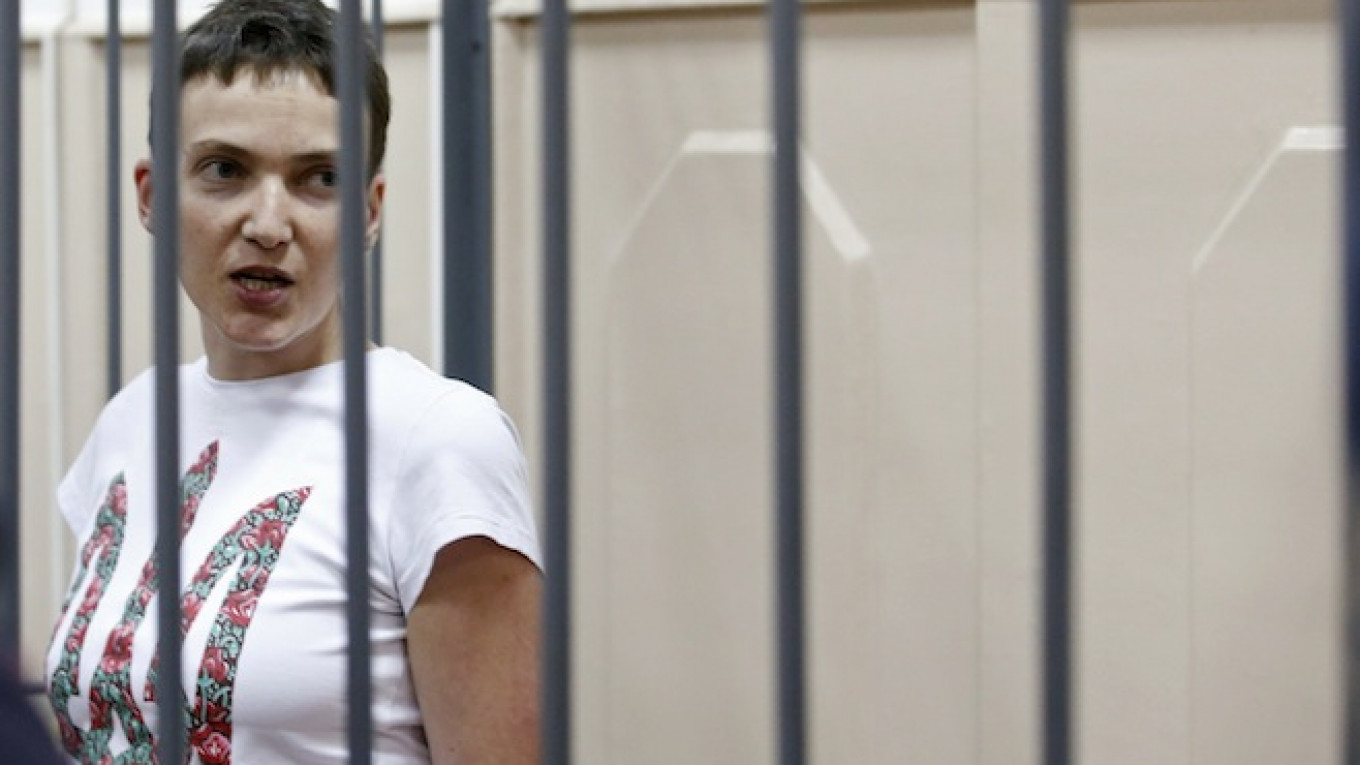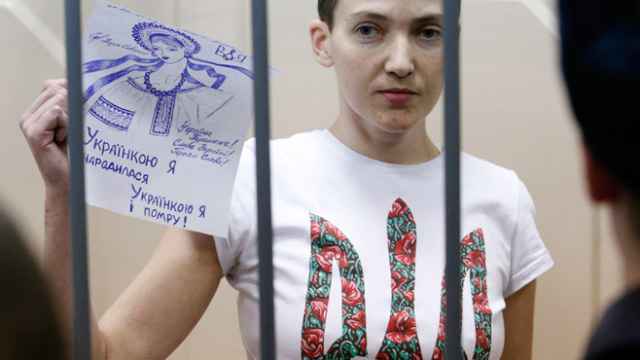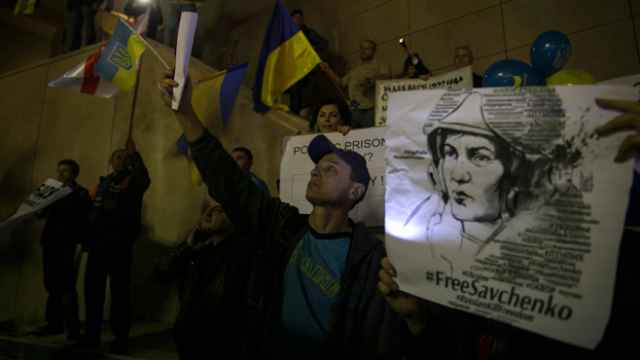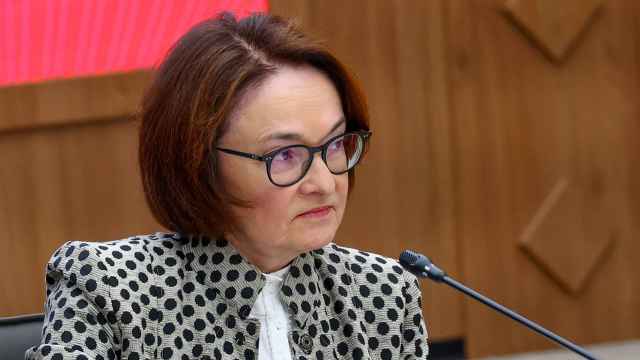Ukrainian pilot Nadezhda Savchenko is suffering from kidney and gall-bladder problems more than two months into her hunger strike at a Moscow jail, a Russian human rights activist who met with the prisoner said.
Despite her declining health, Savchenko was "holding up well, sounded fairly brisk when she spoke with us," Valery Borshchyov, a Moscow Helsinki Committee member, was quoted as saying Monday by RFE/RL Ukrainian Service.
But there is "a risk of complications because the hunger strike has gone on for too long," Borshchyov said, adding that the 33-year-old pilot had "troubles with her kidneys, gall bladder."
Savchenko, who was captured by pro-Moscow forces in eastern Ukraine and handed over to Russia last summer, has lost 17 kilograms since going on a water and glucose diet in December, according to Reuters. Her lawyer said on Twitter that the pilot's health took a sharp turn for the worse in late January.
Moscow accuses Savchenko of abetting the killing of two Russian journalists who died in artillery shelling in eastern Ukraine last June.
Amid Western and Ukrainian calls for the release of Savchenko, who has become a symbol of resistance at home, Moscow allowed a group of German doctors to visit her last week, Reuters reported.
German Foreign Minister Frank-Walter Steinmeier said his government was extremely concerned about her health, but gave no details of her condition, according to the report.
A Message from The Moscow Times:
Dear readers,
We are facing unprecedented challenges. Russia's Prosecutor General's Office has designated The Moscow Times as an "undesirable" organization, criminalizing our work and putting our staff at risk of prosecution. This follows our earlier unjust labeling as a "foreign agent."
These actions are direct attempts to silence independent journalism in Russia. The authorities claim our work "discredits the decisions of the Russian leadership." We see things differently: we strive to provide accurate, unbiased reporting on Russia.
We, the journalists of The Moscow Times, refuse to be silenced. But to continue our work, we need your help.
Your support, no matter how small, makes a world of difference. If you can, please support us monthly starting from just $2. It's quick to set up, and every contribution makes a significant impact.
By supporting The Moscow Times, you're defending open, independent journalism in the face of repression. Thank you for standing with us.
Remind me later.






